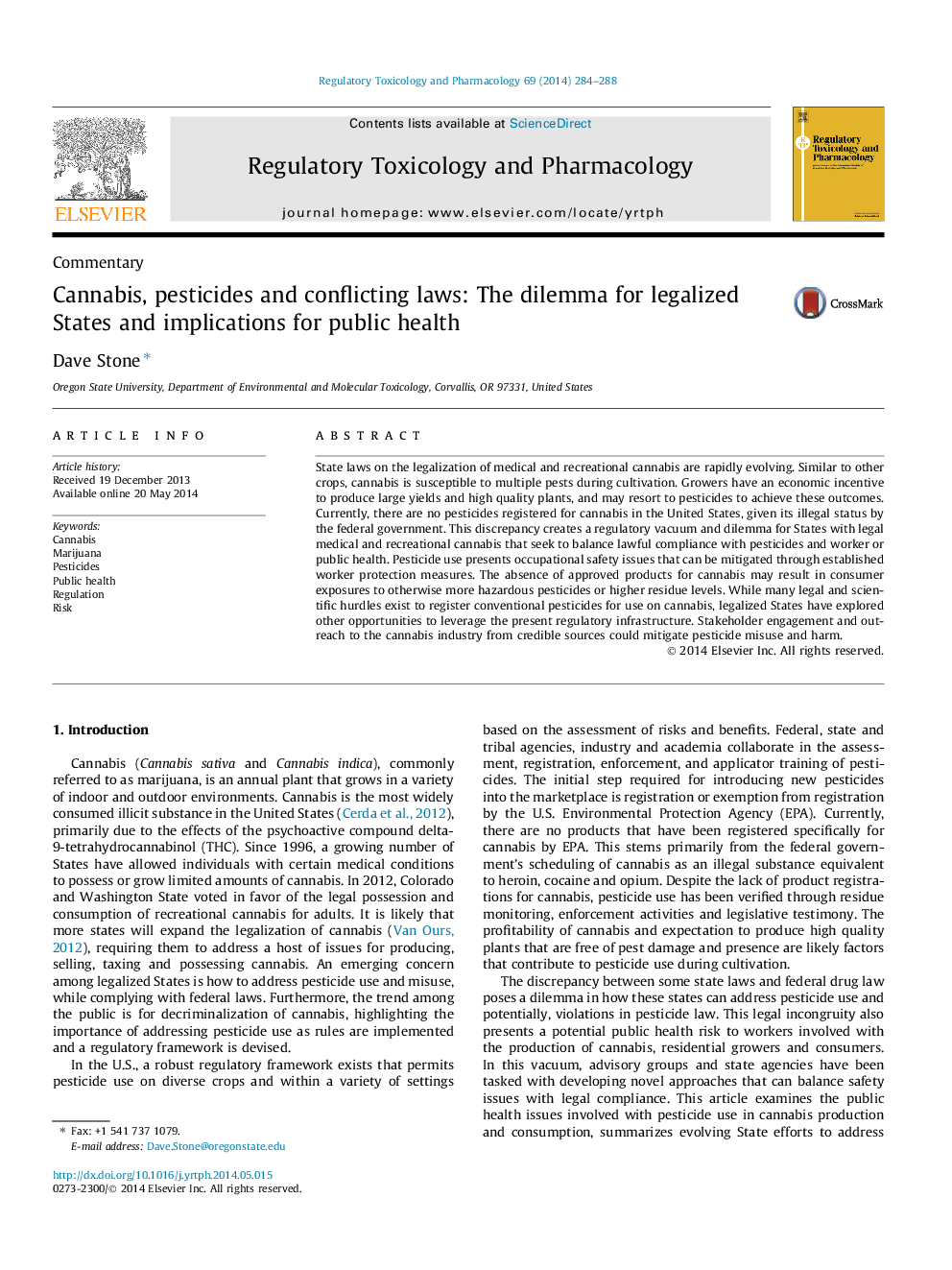| Article ID | Journal | Published Year | Pages | File Type |
|---|---|---|---|---|
| 5857028 | Regulatory Toxicology and Pharmacology | 2014 | 5 Pages |
â¢The discrepancy between Federal and State cannabis laws are examined in the context of pesticides.â¢The public health issues associated with occupational and non-occupational pesticide use are discussed.â¢The approaches taken by legalized States to address pesticides use in cannabis cultivation are summarized.
State laws on the legalization of medical and recreational cannabis are rapidly evolving. Similar to other crops, cannabis is susceptible to multiple pests during cultivation. Growers have an economic incentive to produce large yields and high quality plants, and may resort to pesticides to achieve these outcomes. Currently, there are no pesticides registered for cannabis in the United States, given its illegal status by the federal government. This discrepancy creates a regulatory vacuum and dilemma for States with legal medical and recreational cannabis that seek to balance lawful compliance with pesticides and worker or public health. Pesticide use presents occupational safety issues that can be mitigated through established worker protection measures. The absence of approved products for cannabis may result in consumer exposures to otherwise more hazardous pesticides or higher residue levels. While many legal and scientific hurdles exist to register conventional pesticides for use on cannabis, legalized States have explored other opportunities to leverage the present regulatory infrastructure. Stakeholder engagement and outreach to the cannabis industry from credible sources could mitigate pesticide misuse and harm.
